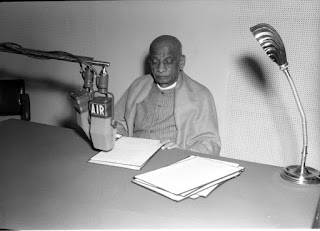Mr. Vallabhbhai Patel has been again appointed President of the Deskroi Taluka Samiti. At the last annual general meeting of the Daskroi Taluka Samiti held in the Premabhai Hall last Sunday he earnestly pressed for the appointment of some one else, but as none showed readiness to accept the post, he was unanimously asked to continue holding it. This is significant answer to those who were perpetually hounding him for the last three months. A local contemporary had opened its columns for his vilification, and till the last moment it had continued suggesting the appointment of better persons. But better persons were conspicuous by their absence, and the choice of the voters again fell on Mr. Vallabhbhai.
In fact there is no person abler and better fitted at present to lead Gujarat than Mr. Vallabhbhai. He is fearless in word and deed, but his fearlessness does not end in bravado. He takes a calmer view of the situation, and shapes his conduct accordingly. He realises that for the present the path of duty lies in silent, peaceful work among the masses. We are not yet prepared for offering civil disobedience. The inauguration of civil disobedience will bring in its train, as it has done in other Provinces, an awful reign of repression. The people will either resort to violence or will be cowed down. In either case the hands of our progress will be set back, and the forces of reaction will triumph.
Mahatma Gandhi saw all this from the outbreak at Chauri Chaura. He shuffled off his campaign of mass civil disobedience in Bardoli, and advised concentration on constructive work. Even at the time of his conviction and sentence to a long term of six years the one word that was on his lips was Khaddar. Khaddar will vitalise and unify India into a strong and united nation which no power on earth will keep under subjection. Mr. Vallabhbhai is but following the instructions of Mahatma Gandhi, and he has thereby incurred the wrath of some of his followers. He is organising the production and distribution of Khaddar without any speeches or demonstrations, and the people concluded that he is doing nothing.
Picketting is a kind of force to which Indians are not yet amenable. They see in it the violation of their natural rights, and they hesitate not to stop to the lowest means for opposing it. Wherever it has been used, it has aroused the bitterest feelings and has resulted in the worst forms of retaliatory measures. Mr. Vallabhbhai is not therefore wrong when he advises the giving up picketting and the reliance on personal example. The shining torch of personal example is more eloquent than picketting or preaching. If we improve ourselves the world cannot but be improved.
Picketting is a kind of force to which Indians are not yet amenable. They see in it the violation of their natural rights, and they hesitate not to stop to the lowest means for opposing it. Wherever it has been used, it has aroused the bitterest feelings and has resulted in the worst forms of retaliatory measures. Mr. Vallabhbhai is not therefore wrong when he advises the giving up picketting and the reliance on personal example. The shining torch of personal example is more eloquent than picketting or preaching. If we improve ourselves the world cannot but be improved.
















